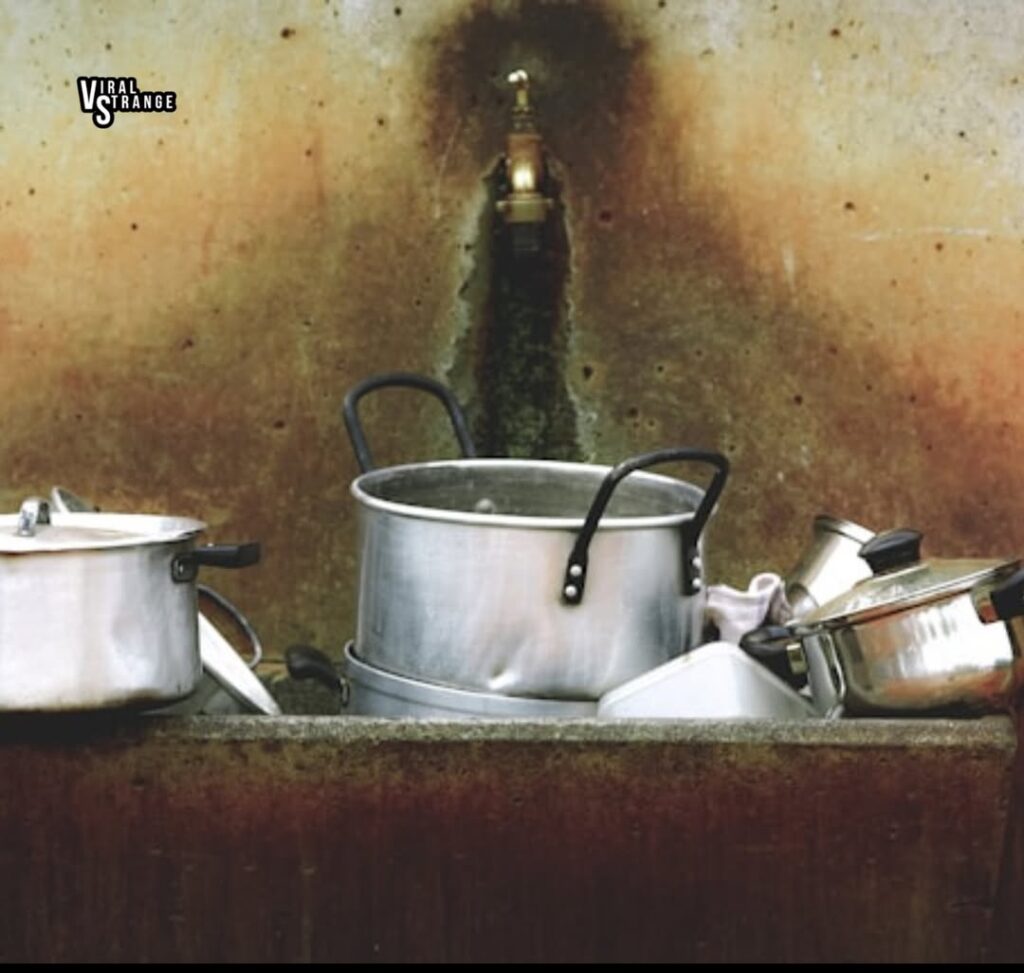That stack of dishes in your sink might seem like a harmless sign of a busy life, but psychologists suggest it could reveal deeper truths about your emotional and mental state. Let’s explore what your kitchen chaos might be trying to tell you—and how to respond with kindness to yourself.
When Dishes Become More Than Dishes
We’ve all been there: a sink full of dirty dishes, looming like a silent accusation. I’ll admit, there have been weeks when my kitchen looked like a dishware battlefield, and I told myself it was just because I was “too busy.” But then I started to notice a pattern—those piles often grew when I was feeling overwhelmed, stressed, or just plain off. It turns out, I’m not alone, and there’s a reason why that stack of plates can feel so heavy. . source: World Info Organization 2025
Clinical psychologists explain that our living spaces often mirror our inner worlds. A pile of dirty dishes isn’t always about laziness or a packed schedule—it can be a sign of deeper emotional or mental health struggles. Dr. Susan Albers, a clinical psychologist at the Cleveland Clinic, notes that when people are grappling with anxiety, depression, or burnout, even simple tasks like washing dishes can feel insurmountable. “The state of your kitchen can be a barometer for your emotional state,” she says. “It’s not just about the dishes; it’s about what’s going on inside.”
For me, this hit home during a particularly tough month last year. Work was relentless, and I was juggling personal challenges. The dishes piled up, and every time I walked past them, I felt a pang of guilt. But learning that this could be more than procrastination gave me a new perspective—it wasn’t about being “lazy”; it was about my mind signaling it needed a break. Source : USA TODAY LATEST NEWS 2025
Did You Know? Research shows that cluttered environments can increase stress levels by 15-20%, as visual chaos overwhelms the brain’s ability to focus.
The Science Behind the Sink: Executive Dysfunction
There’s a psychological term for why small tasks like dishwashing can feel impossible: executive dysfunction. This happens when the brain’s prefrontal cortex—the part responsible for planning, organizing, and following through—struggles to function effectively. It’s common in conditions like depression, anxiety, ADHD, or even during periods of intense stress. Dr. John Grohol, founder of Psych Central, explains, “Executive dysfunction isn’t about not wanting to do the task—it’s about the brain hitting a roadblock in initiating or completing it.” Source : USA TODAY LATEST NEWS 2025
Think of it like a car with a faulty starter. You know you need to clean the dishes, and you might even want to, but the mental energy to begin just isn’t there. As a result, dishes pile up, laundry stays unfolded, and clutter creeps in, each adding to a cycle of overwhelm. I remember staring at my sink, knowing it would take 10 minutes to clear, but feeling paralyzed, as if it were a mountain to climb. That’s executive dysfunction at work, and it’s more common than you might think.
What’s fascinating is how this ties to mental fatigue. Studies suggest that during emotional overload, the brain prioritizes survival tasks (like eating or sleeping) over “non-essential” ones like cleaning. So, those dishes aren’t just a mess—they’re a signal that your mind might be stretched too thin.
The Emotional Cycle of Neglect
Here’s where it gets tricky: avoiding chores like dishwashing can trap you in a vicious cycle. Mental health experts point out that household tasks, even mundane ones, provide a sense of accomplishment and control. Washing a single plate can be a small victory, a tangible sign of progress. But when you’re feeling hopeless or stuck, you might skip these tasks, missing out on those little boosts. The result? Guilt, self-criticism, and an even bigger pile of dishes.
I’ve been there, berating myself for letting things slide. “Why can’t I just get it together?” I’d think. But psychologists like Dr. Albers emphasize that self-blame only deepens the rut. Instead, they suggest viewing the dishes as a clue, not a failure. If your sink is overflowing and you’re also feeling low, unmotivated, or anxious, it might be time to check in with yourself. Are you sleeping enough? Are you carrying too much stress? Could this be a sign of something bigger, like depression?
Not every dish pile means a mental health crisis, of course. Sometimes, life is just hectic, and dishes take a backseat. But if you notice a pattern—avoiding tasks, withdrawing from hobbies, or feeling persistently down—it’s worth exploring. Talking to a therapist or even a trusted friend can shed light on what’s going on. . source: World Info Organization 2025
Breaking the Cycle: Small Steps, Big Impact
The good news? You don’t have to conquer the entire sink to start feeling better. Psychologists recommend starting small to rebuild momentum. Here are some strategies that have helped me and others tackle the dish pile—and the emotions behind it:
- Set a Timer: Commit to just five minutes of cleaning. You’d be surprised how much you can do, and it often sparks the motivation to keep going.
- Break It Down: Instead of tackling the whole sink, focus on one task, like washing the plates or soaking the pots. Small wins build confidence.
- Practice Self-Compassion: Ditch the guilt and talk to yourself like you would a friend. “It’s okay, I’m doing my best” can shift your mindset.
- Create a Routine: Pair dishwashing with something enjoyable, like listening to a podcast or music, to make it less daunting.
- Ask for Help: If you’re overwhelmed, lean on a partner, roommate, or friend. Sharing the load can lighten the emotional weight, too.
I started with the five-minute rule, and it was a game-changer. One evening, I set a timer, put on my favorite playlist, and washed a handful of dishes. It wasn’t perfect, but it felt like a weight lifted. Over time, those small efforts added up, and I noticed my mood improving, too. It’s not about a spotless kitchen—it’s about reclaiming a sense of agency.
When to Seek Support
Dirty dishes alone don’t mean you need a therapist, but they can be a red flag if paired with other signs, like persistent sadness, loss of interest in activities, or trouble concentrating. The National Alliance on Mental Illness (NAMI) reports that 1 in 5 adults experiences mental health challenges each year, and many don’t seek help due to stigma or feeling “it’s not that bad.” If your dishes are piling up alongside feelings of hopelessness or exhaustion, it’s okay to reach out.
Therapists can help you untangle executive dysfunction or explore underlying issues like depression or anxiety. Online platforms like BetterHelp or local clinics make it easier than ever to connect with professionals. Even talking to a loved one can be a first step. I once confided in a friend about my dish pile struggles, and her response—“I’ve been there, let’s do them together”—was a reminder that we don’t have to face these moments alone.
A Kinder Perspective on Your Kitchen
The next time you face a sink full of dishes, pause and take a breath. Those plates might just be the remnants of a busy week, or they might be your mind’s way of saying, “I need a little extra care.” Either way, they’re not a verdict on your worth. By taking small steps and offering yourself grace, you can tackle the mess—both in the kitchen and within.
This journey isn’t about perfection. It’s about listening to what your environment, and your heart, are trying to tell you. So, grab a sponge, put on a song, and start where you are. Your dishes might just be the first step toward a lighter, brighter you.


